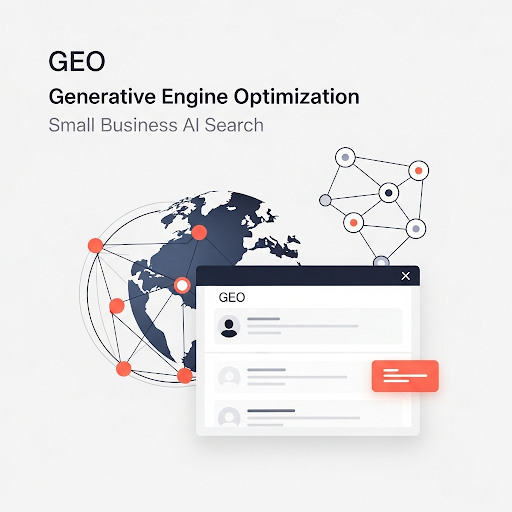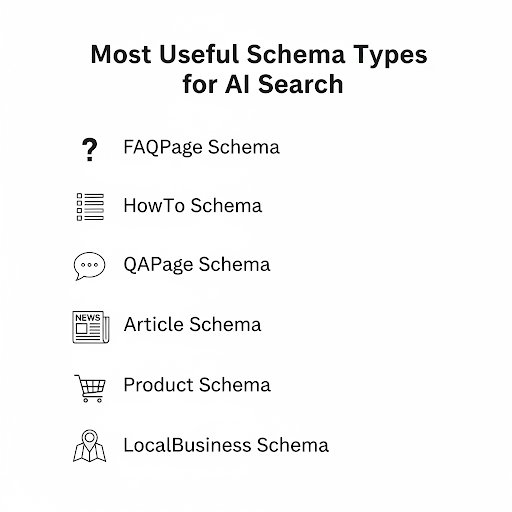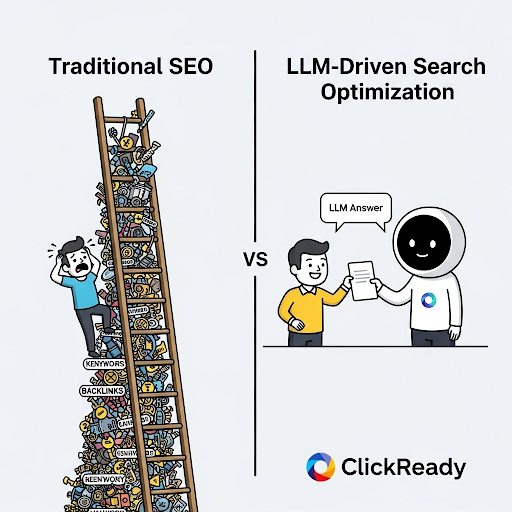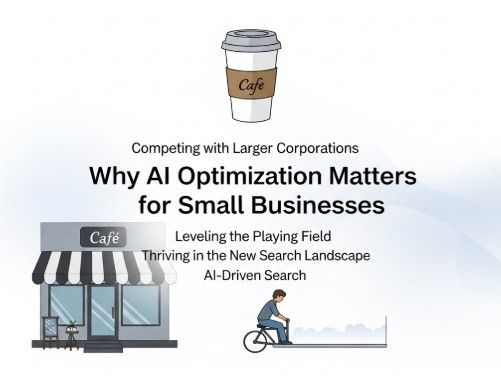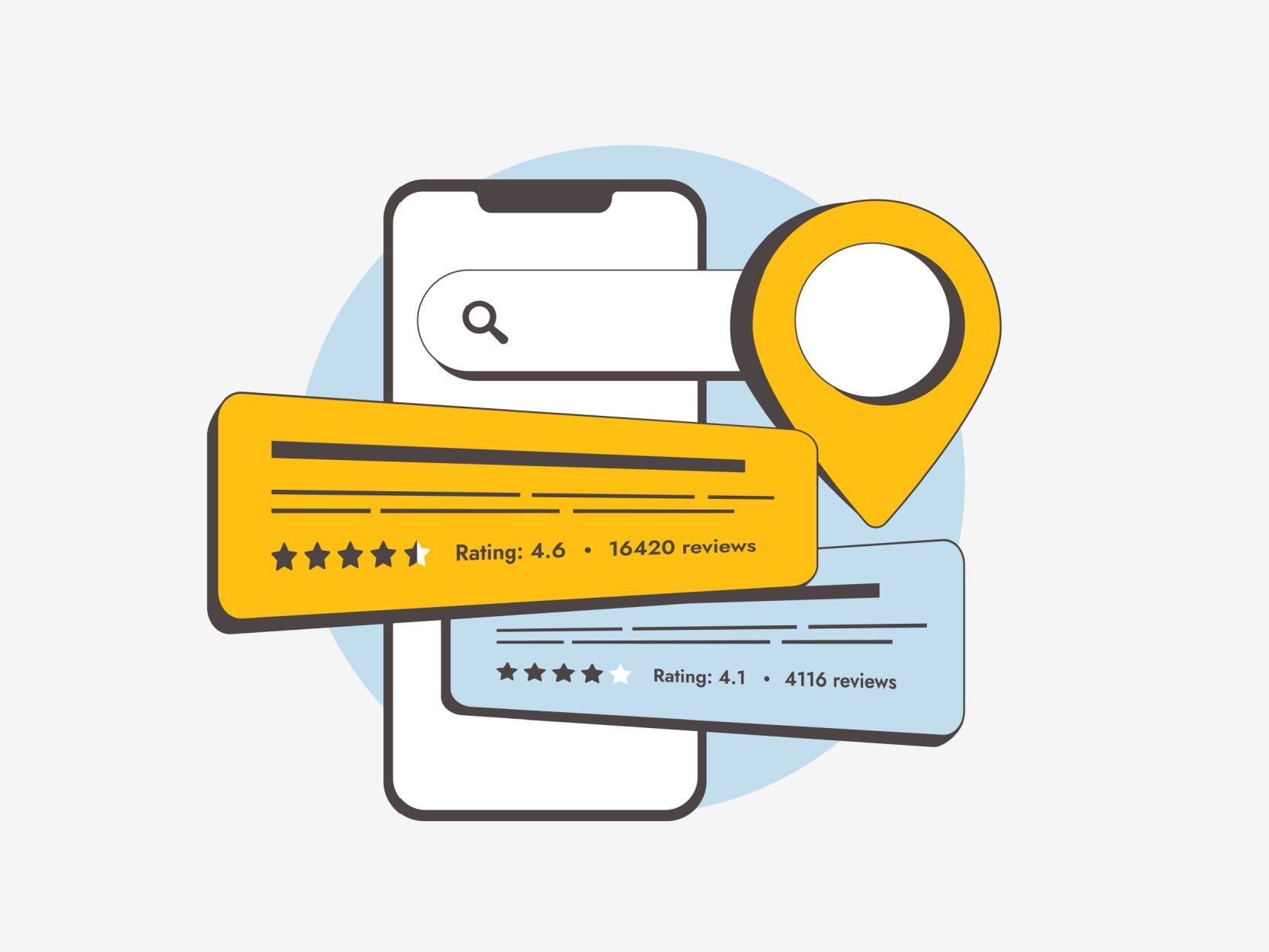The world of search is evolving dramatically. Long gone are the days when ranking at the top of Google search results was the single gold standard of digital visibility. Now, AI-driven platforms like ChatGPT, Perplexity, and Gemini are reshaping how users find answers and make decisions. For small businesses in service, legal, hospitality, and retail industries, adapting to this new reality is not just an option; it’s critical for visibility and customer engagement. Enter
Generative Engine Optimization (GEO), a cutting-edge method to position your business as the answer in AI-driven search results.
At ClickReady, we’ve embraced GEO and paired it with powerful tools like the Semrush AI Toolkit to create personalized strategies that help small businesses thrive in this AI-first digital environment. Here’s why GEO matters and how we can help.
The Changing Landscape of Search
Traditional SEO revolved around keyword optimization, backlinks, and driving traffic to your website. But with AI-driven search tools, user behavior has shifted. Instead of Browse links, users now expect direct, precise answers from their AI assistant, often delivered without needing to visit a website. For small businesses, the challenge is no longer just being found but being
chosen as the answer.
What Does GEO Do?
GEO focuses on keeping your business visible and cited in these direct AI responses. Whether the query comes from ChatGPT or another LLM (Large Language Model), GEO makes sure:
- Your content is structured for easy AI consumption.
- Your business appears in AI recommendations and summaries.
- You stay ahead of competitors in this rapidly evolving space.
For industries like legal services, hospitality, or local retailers, where competition is fierce and visibility is a game-changer, GEO is a must-have strategy.
What Do LLMs Care About? Key Factors for AI-Driven Visibility
To truly succeed in the age of Generative Engine Optimization, it's essential to understand the specific qualities Large Language Models (LLMs) prioritize when consuming and citing content. These factors go beyond traditional keyword matching and delve into the semantic understanding and trustworthiness of your information.
Here’s a breakdown of what LLMs value most:
Content Quality & E-E-A-T (Expertise, Experience, Authority, Trust)
- Impact: Very High
- Why it Matters: Cited in most AI-generated answers, E-E-A-T is foundational for building trust and authority with LLMs. Content demonstrating real-world experience, deep expertise, established authority, and verifiable trustworthiness is heavily favored. LLMs are increasingly sophisticated at discerning genuine credibility from mere claims.
Structured Data & Schema Markup
- Impact: High
- Why it Matters: Schema markup (e.g., FAQ, HowTo, Product, Organization) provides explicit, machine-readable information about your content. This helps AI models better understand the purpose and context of your data, making it easier for them to extract and cite relevant snippets in their responses. It acts as a clear blueprint for LLM comprehension.
Authoritative List Mentions
- Impact: High
- Why it Matters: AI engines frequently reference “Best of” guides, curated lists, and industry roundups from reputable sources. Being included in these authoritative lists significantly boosts your chances of being cited by LLMs, as it signals recognition and validation within your industry.
Citations, Quotes & Statistics
- Impact: High
- Why it Matters: LLMs are designed to provide evidence-based responses. Content that incorporates original statistics, research findings, and expert quotes (with proper attribution) is highly valued. Studies show that adding such data can boost inclusion in AI responses by 15-40%, as it signals credibility and factual accuracy.
Named Entity Presence (e.g., Brand/Organization Recognition)
- Impact: High
- Why it Matters: LLMs prioritize entities (like your brand or organization) that are recognized and consistently described across trusted platforms such as Wikipedia, Wikidata, and via schema markup. A strong and consistent online presence as a recognized entity strengthens your brand's authority and makes it more likely to be referenced.
Content Freshness
- Impact: Moderate
- Why it Matters: While some LLMs rely on historical datasets, those with real-time search capabilities or Retrieval-Augmented Generation (RAG) systems favor recent updates, especially for trending topics. Regular content updates signal ongoing relevance and accuracy.
Online Reviews & Awards
- Impact: Moderate
- Why it Matters: Positive online reviews and industry awards contribute significantly to trustworthiness, particularly for B2B and local queries. LLMs often factor in public sentiment and accolades when making recommendations or summarizing businesses.
Engagement Signals (Shares, Comments)
- Impact: Emerging
- Why it Matters: While less definitively proven than other factors, signals of user engagement like social shares and comments may contribute to overall content visibility and perceived relevance by LLMs. As AI models become more sophisticated, these human interaction signals could play an increasing role.
How ClickReady Transforms Your GEO Strategy
ClickReady has been helping small businesses for over 15 years, combining SEO expertise with our forward-thinking strategies. Our Generative Engine Optimization services are designed to meet the different needs of service-based industries. Here’s how we do it:
1. Optimizing Content for AI
AI models prioritize content that is clear, trustworthy, and well-structured. Unlike traditional web pages, where users search and scan for answers, AI-driven platforms hunt for content that provides direct, concise responses. To meet this need, we:
- Focus on E-E-A-T (Expertise, Experience, Authority, Trust): AI engines value content written by credible experts. We improve your content to demonstrate your real-world knowledge, backed-by-client success stories, or professional credentials.
- Target Long-Tail Queries: Long-tail keywords are detailed, highly specific phrases that users often enter into AI platforms. For example:
- Retail question: “What are the best eco-friendly stores in Atlanta?”
- Legal question: “How much does a family lawyer charge for custody cases?” By answering these directly on your website, we increase the likelihood of your business being referenced in AI-generated results.
- Direct Answer Formatting: LLMs tend to “hunt down” direct answers in content. Structured, clear answers get featured. Content with concise answers, clear headings, bullet points, and FAQ schema is 40–50% more likely to appear in AI answer boxes. Microsoft Bing and Google AI often select well-structured content even beyond top-ranked pages. To leverage this, we format your content to explicitly answer common questions. For example, we use headings that are phrased as questions and provide a clear, concise answer immediately following.
Most Useful Schema Types for AI Search
To stand out in AI-driven search results, structured data plays an important role.
Schema markup helps AI platforms like ChatGPT and Perplexity understand and categorize your content, making it easier for them to cite your business in responses. Here's a look at the most impactful schema types for small businesses in service, legal, hospitality, and retail industries and how they can benefit you:
FAQ Page Schema
- Use Case: Highlight frequently asked questions about your business or services.
- Ideal For: Informational content, service pages, or customer support sections.
- How It Helps: AI platforms prioritize direct, question-and-answer formats. By implementing FAQPage schema, you get your content ready for AI to extract and display when users ask similar questions. For example, a lawyer could create an FAQ about common legal processes, or a local retailer could answer questions about store policies.
How To Schema
- Use Case: Give step-by-step instructions for tasks related to your industry.
- Ideal For: Tutorials, processes, recipes, or instructional content.
- How It Helps: AI frequently refers to HowTo schemas for answering practical queries. A hospitality business could use this schema for content like “How to choose the perfect event venue,” while a service provider might explain “How to maintain your HVAC system.”
Q&A Page Schema
- Use Case: Structure content where users ask and answer questions, such as forums or community pages.
- Ideal For: Help centers, forums, or Q&A-style blog content.
- How It Helps: QAPage schema is excellent for businesses that address user-specific queries. For example, a retailer might use it to field community questions like “What are the best eco-friendly products available?”
Article Schema
- Use Case: Improve blog posts and leadership articles.
- Ideal For: Blog content, long-form articles, or industry insights.
- How It Helps: Article schema optimizes your content for AI to recognize it as informative and credible. A legal firm could use this schema to share detailed guides like “Navigating family law cases,” or a small business in retail could publish “Emerging sustainable trends in fashion.”
Product Schema
- Use Case: Mark up detailed descriptions of your products, including pricing, features, and reviews.
- Ideal For: E-commerce sites and product review pages.
- How It Helps: Product schema makes it easier for AI platforms to pull details about your offerings into recommendations or overviews. Retailers can use this to feature bestselling items, such as a clothing store showcasing a new collection or a venue promoting packages.
Local Business Schema
- Use Case: Give information about your business, including location, hours, and contact details.
- Ideal For: Any local service provider, restaurant, or retailer.
- How It Helps: LocalBusiness schema allows AI platforms to understand your location-specific data. For small businesses, this schema is invaluable for driving foot traffic and informing users about your presence in their area. For instance, a restaurant could use it to display hours of operation and menu highlights, while a service provider could list key service regions.
Why Schema Markup Matters for Your Business
Implementing the right schema types makes your content clear, authoritative, and easily understood by AI platforms. This level of structure increases your chances of being featured in AI-driven answers, helping you attract more targeted leads and establish trust with potential customers.
By leveraging these schema strategies, small businesses can stay ahead in AI-driven search, transforming visibility into meaningful engagement.
2. Using
Semrush Technology for LLM Insights
To compete in AI-driven search, you need insights into how your brand appears across platforms like ChatGPT or Perplexity. The Semrush AI Toolkit empowers us to:
- Track Your AI Visibility: Identify how often your business appears in AI-generated answers compared to your competitors.
- Uncover Key Topics: See the themes your business is most associated with, such as “family law services” or “cozy boutique hotels.”
- Analyze Brand Sentiment: Detect whether AI perceptions of your business are positive or need improvement.
AI-Optimized Brand Visibility
2. Find Out What AI Thinks of Your Business
AI platforms curate responses based on how they perceive your brand. Through sentiment analysis, the Semrush AI Toolkit exposes how your business is portrayed in AI-generated content. Is your product described as “reliable” or “expensive”? Understanding these narratives empowers you to seize opportunities to reinforce strengths and address potential vulnerabilities in your online presence. Accurate AI perception means more trust, relevance, and better brand exposure.
3. Rethink Content Strategies Beyond Keywords
Unlike users scrolling through traditional Google search results, AI users expect clear and direct answers. To keep up, businesses need to move past conventional keyword optimization and think bigger. The Semrush AI Toolkit guides you toward creating content designed for AI comprehension and citation. It highlights:
- The importance of long-tail keywords that match conversational AI queries.
- Strategies to create your content as clear, using schema markup and contains concise formatting.
- The value of aligning content with FAQs, How-To guides, and deeply informative answers, which AI prioritizes for its summarized outputs.
By integrating these insights into your content strategy, you position your business for success across every major AI platform.
4. Developing Strategies for Small Businesses
At ClickReady, we know that no two businesses are alike. Small businesses need solutions that fit their specific industries and audiences. Whether you’re in hospitality looking to attract bookings or a local service provider competing in your area, we tailor strategies to match your goals. For example:
- Service Providers: We maintain your site by optimizing for local GEO queries, like “plumber near me” or “best HVAC service in Cumming, GA.”
- Retail Businesses: We create content that aligns with AI users’ shopping behavior, like “compare sustainable clothing stores in Georgia.”
- Legal Firms: We focus on building trust and authority by highlighting positive reviews and clear descriptions of your legal expertise.
- Hospitality: Using multimedia like videos and rich imagery, we show why your hotel or venue is a standout choice, and AI cites you for queries like “family-friendly hotels in North Georgia.”
5. Proven Results and Real Metrics
We don’t just promise results; we deliver measurable improvements. With powerful tools like Semrush, CallRail, and Google Analytics, we monitor your success and refine your strategy as needed. From citation frequency in AI to engagement metrics, we keep you up and always improving. Just one successful GEO campaign can significantly increase your leads, traffic, and revenue.
Traditional SEO vs. LLM-Driven Search Optimization
As AI-powered platforms redefine how users search for information, understanding the key differences between traditional SEO and LLM (Large Language Model)-driven search optimization is important. Here’s a comparative look at how these two approaches stack up:
Understanding the Evolving Search Funnel
The shift to AI-driven search fundamentally changes the user journey from initial query to action. Here's a comparison of the traditional SEO funnel versus the AI search funnel:
For service, legal, hospitality, and retail industries, adapting to LLM-driven search means rethinking your strategy. Instead of solely competing for higher SERP rankings, the objective shifts to creating clear, actionable, and highly specific answers that AI platforms can directly reference.
This not only creates opportunities for businesses to feature in AI recommendations but also helps build trust and authority, especially when combined with user-centric strategies like leveraging long-tail queries and schema markup.
By acknowledging these differences and optimizing your content for both traditional SEO and AI-powered platforms, your business gains a competitive edge in a rapidly evolving digital landscape.
Why AI Optimization Matters for Small Businesses
AI-driven search levels the playing field for small businesses by focusing more on relevance and authority rather than marketing budgets. With GEO, even local businesses can compete with larger corporations, provided they deliver high-quality, specific, and structured content. At our
local digital marketing company, we help you not just survive but thrive in this new search landscape.
Partner with ClickReady for GEO Success
Generative Engine Optimization is the future of digital marketing, and ClickReady is here to make sure your business is ahead of the curve. Whether you’re a retailer, lawyer, hospitality provider, or service-based business, we have the expertise and tools to help you stand out. With our “Test, Learn, and Advance” approach, we’re committed to helping you achieve real results in AI-driven search.
Contact us today for a free consultation!
Call us or request a demo to see how ClickReady’s GEO strategies can help your small business shine in the AI era. Better visibility starts here!
Request Demo
Frequently Asked Questions (FAQs)
How is Generative Engine Optimization (GEO) fundamentally different from traditional SEO, and why does this matter for my small business?
Traditional SEO focuses on getting your website to rank high in a list of links (SERPs), aiming for clicks to your site. GEO, however, optimizes your content to be directly consumed and cited by AI models (LLMs) like ChatGPT or Google's AI Overviews. This matters because users increasingly get summarized answers without visiting a website. For your small business, GEO makes your brand the answer according to AI, building direct visibility and authority, rather than just being one link among many.
What specific types of content and formatting should small businesses prioritize to improve their Generative Engine Optimization (GEO)?
To upgrade your GEO, prioritize content that is clear, concise, and structured for AI comprehension. This includes:
- Direct Answer Formatting: Using clear headings as questions followed by immediate, straightforward answers.
- Long-Tail Queries: Answering very specific, conversational questions your target audience might ask an AI.
- Schema Markup:
Implementing structured data (like FAQPage, HowTo, LocalBusiness, Product) to give AI explicit context about your content.
- E-E-A-T (Expertise, Experience, Authority, Trust): Getting your content to demonstrate genuine credibility through expert insights, citations, and reliable data.
- Multimedia: Including videos and images with descriptive alt text that AI can understand
Can small businesses truly compete with larger brands in AI-driven search, or is GEO just for big companies?
Absolutely, small businesses can compete effectively! While traditional SEO sometimes favored large domains due to extensive backlinks and budget, AI-driven search levels the playing field by prioritizing relevance, clarity, and authority regardless of brand size. If your small business provides genuinely high-quality, well-structured, and trustworthy answers to user queries, AI models are more likely to cite your content. GEO empowers small businesses to showcase their expertise directly in AI summaries, turning size into less of a disadvantage and quality into the key differentiator.

